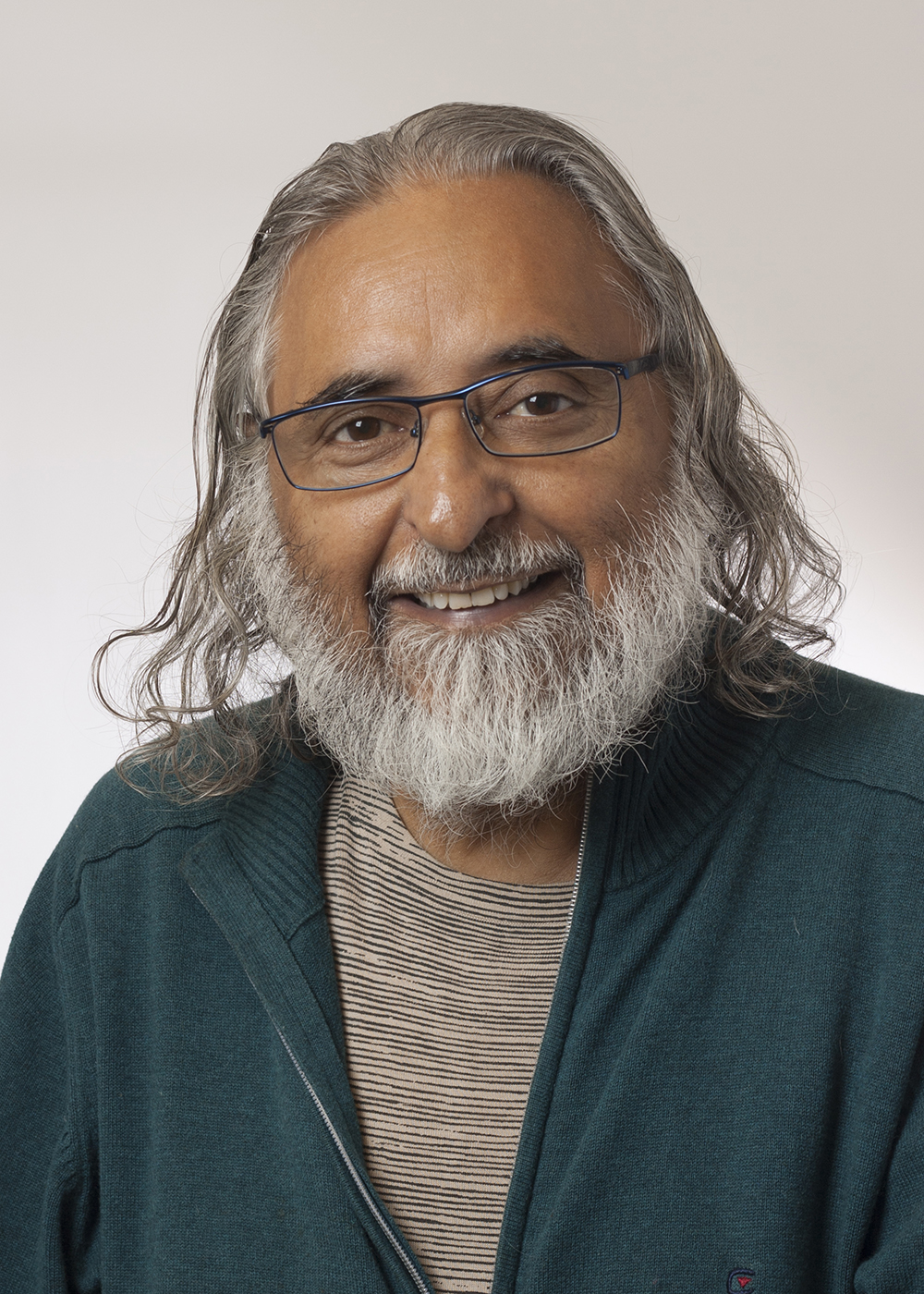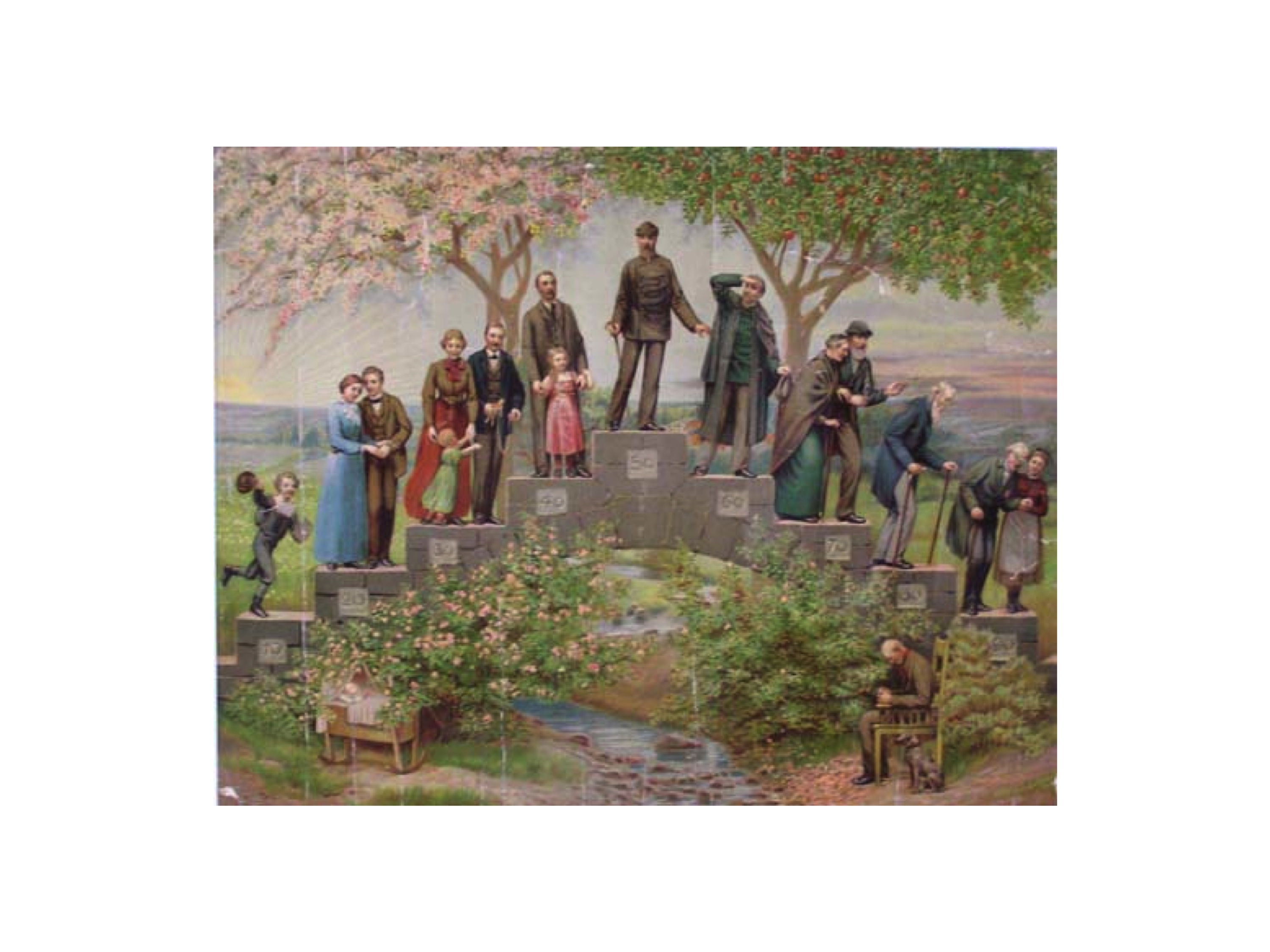I had concluded my first write up Coming Face to Face, by commenting on the results of my medical tests and scans: ‘‘…typical age-associated…scars of a long life of six decades so far. That is what old age is. That is what I have learnt, studied and researched for the last 35 years. I must now Live in Old Age. The future begins now”.
When did I become old? When does anyone become old? Who is an old person?
I usually ask this question to my students in my biogerontology course, and I encourage one of them to act out as an old person and walk a few steps towards me. It is always – without an exception so far – done like this:
A bent and shrunken body, holding a stick, wobbling, shaking, trying to focus the sight, balancing the gait, hand-cupping an ear, unsure of itself, with a fake smile hiding the pains of a life time – sad very sad. Boys and girls, they all present an old person like that.
If that is what it means to be old – then I have not become old.
And when I ask the students: ‘Is that the way I walk and I talk?’
A resounding: ‘No…’
‘But I am old as you can see…’
‘Yesss…, but…’
‘But what?’
‘You are not thaaaat old’.
And we all laugh – a bit confused, a bit embarrassed, a bit thoughtful.
If I had asked my students to draw an old person, they would have, most likely, drawn a face full of wrinkles, with dryish leathery skin, drooping lips, and with glow-less eyes looking far into the void.
Those are the images of an old person in our minds. I am not like that – as yet. I may never become like that. But it will be like that, more or less. Most of us will be like that.
There are some lucky ones too. Some centenarians have been running marathons. Fauja Singh did it a couple of times after becoming 100. At 105, Hidekichi Miyazaki made a 100-metre sprint in 42.22 seconds and imitated the pose of Usain Bolt with 9.58 second record. Healthy, active, old, but more than 4 times slower than Bolt at age 26.
I don’t know how I will be as an old person. What I know is that my old age started when I celebrated my 45th birthday. How do I know that?
As a biogerontologist I have researched and studied this subject all through my academic career; and I am confident that I can tell you all that we know about what happens to our bodies when we are in the process of becoming old.
We don’t grow old, we become old.
There is, however, a big difference between the “becoming” old of a person and that of a thing. Tables, cars, buildings and all other things become old passively by being at the mercy of the natural elements – the air, the water and everything else in and around those.
A person, a living being seems to “grow” old as if there is something intrinsic and pre-determined course to follow. We are born, we grow from infancy to childhood, to adolescence, to adulthood, and then we continue to grow into old age – that must be that straight forward. No, it is not.
Yes, we are born, we grow from infancy to childhood to adolescence to adulthood. Different stages of life at different ages. That is what our biology has evolved into. These are very determined and directed processes which are affected, monitored and regulated by hundreds and thousands of genes. Evolution has developed fantastically effective and efficient mechanisms to help us through all those stages. We call such genes as “longevity assurance genes” – LAG. Fighting infections, protecting against corrosion, healing wounds, regulating temperature, building bones and muscles, replacing damaged cells and so on are some of the major LAG-based processes inside our living bodies.
LAG assure that a large enough number of individuals within a species survive and give birth to the next generation, so that a species could continue. All species need a certain period of survival to do that. We ageing scientists call that a ‘warranty period’ or the essential lifespan (ELS) of the species – a term that I coined. ELS of houseflies is about 7 days, of rats about 1 year, of monkeys about 25 years and so on… Our species, Homo sapiens, has the ELS of about 45 years. That is why when I celebrated my 45th birthday, I entered into the next stage of life: old age. I am already 17 years into it.
When will I become old, real old, and not as my students said “not thaaat old.”. Some sociologists use the words early old, old, older, and very old to identify further sub-stages.
Whenever that happens, I am living towards it. Old age is also a continuum. I can put myself into any of the sub-stages depending on who is around me at that time. I cannot pretend to be young. I am living in old age. There is no denial of that – at least at the biological level.
Physically, I have nothing much to look forward to in becoming old. What my students performed as actors is quite right for the most. But that was only the external appearance of the old body. Inside the body, the condition of an old person is even more depressing and saddening.
All my organs, systems and cell are becoming less functional, less efficient and less fit in old age. When and if these changes become too much and cross certain thresholds, they will get labelled as diseases. My body’s reduced ability to keep the sugar levels in the blood below 7 milli-moles made my doctor label as a diabetes-2 patient. Alzheimer, Parkinson, osteoporosis, sarcopenia and whatever else that may become tagged onto me will be the result of my life in old age. There are no bacteria, viruses or other germs, which cause the diseases in old age. Life itself is the cause.
I do trust and count on scientists to develop more and more and better and better means of helping my body in old age.
Perhaps I should look into old age from a social angle. Is there anything nice about becoming old? What about all those visions of the experienced, wise, empathic, tolerant and the loving old one we all talk about? Is that real or a mere wishful thinking?
Whatever the state of my body, I hope to become old, older and very old in a society. Living socially in old age will be the next one I think about for the next time…
*********


